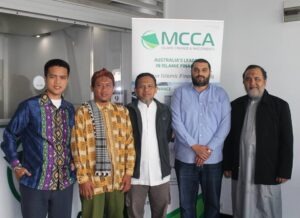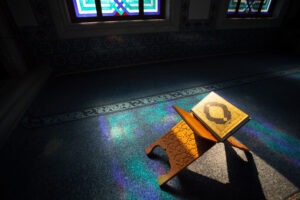While the expansion of Islamic finance industry as we know today seems relatively recent, the core values of Islamic finance remain the same as it was revealed in the holy Qur’an thousands of years ago, just reformatted in the mid 20th Century to be more compatible with modern banking.
With Islamic finance recently exploding in popularity within the mainstream financial world, it’s easy to view the system as somewhat of an experimental and mysterious investment.
However, the truth is that the current growing interest in Islamic finance has come after a long history of revising modern banking practises and pioneering for more socially responsible financial services which are not only Muslim-friendly but also ensure sustained financial stability in the futures to come.
From the Islamic Golden age to the Ottoman Empire to its modern revival, this first instalment of the two-part series on the history of Islamic finance will take you on a journey to discover how Islamic finance has revolutionised and taken the world’s trade markets by storm.
Early Days of Islamic Finance
Since the revelation of proper trade practices within the holy Quran, during the time of the Prophet (SAW), Islamic finance has been built on a system rooted in ethical practices and safeguarding the community:
“O ye who believe! Eat not up your property among yourselves in vanities; but let there be amongst you traffic and trade by mutual good will” (Quran 4:29)
In Islam, the base of this security and caution lies within Sharia (Islamic law), which prohbits riba (usury or interest) and gharar (unequally shared risk). In prohibiting these practices within Islamic finance, it prevents the abuse in power that comes with unjustly controlling money as an asset, rather than simply using it as a medium to trade goods and services with.
Use of this finance system was eventually formalised within Muslim communities and set the standard for economic activity among cross-continental trade routes coming into the Arabian peninsula. As the centuries progressed and these trade routes continued to flourish, Muslims became the first to develop business corporations that were independent of the state.
Early Stages of Modern Islamic Finance
However, while the Islamic finance system is as old as the religion itself, the first operative and inherently Islamic modern banks were not built until the mid-20th Century. In fact, a number of countries (even Muslim majority countries such as Saudi Arabia) were very sensitive to idea of “Islamic” banking for political reasons.
But, as the population of Muslims who distrusted local banks (which, at the time, largely followed the non-Islamic financial practices of the Western world) grew, the first experimental modern Islamic banks were set up to appease the potential market.
To ease the idea of Islamic finance into mainstream markets, many of the first Islamic institutions did not label themselves as Islamic. Two notable examples of such institutions included Al Rajhi Bank and Mit Ghamr Savings Bank. Al Rajhi Bank – currently the largest Islamic bank in the world outside Iran – was founded in Saudi Arabia by Sheikh Sulaiman Bin Abdul Aziz Al Rajhi.

Without the pioneering role of Al Rajhi Bank, it would’ve been difficult for Saudi Arabia to emerge as the Islamic finance stronghold it is today.
Similarly, Mit Ghamr Savings Bank, established by economist Ahmad Elnaggar in Mit Ghamt, Egypt, in 1963, gave way to nine more Islamic banks in Egypt at the conclusion of the experiment in 1967.
Eventually, with the success of these experimental modern Islamic banks, Dubai Islamic Bank – currently the biggest Islamic bank in the UAE – was established in 1975, becoming the first modern Islamic bank to incorporate the principles of Islam into all of its practices.
The Islamic Development Bank was also established in 1975, with aims of expanding sharia-compliant financial services to Muslims all across the world.
abu_anas1989.jpg)
The first President of the institution, Dr. Ahmed Mohammed Ali, spent his 40 year career bolstering the sectors of Islamic banking, asset management, takaful, trade finance, and capital markets with the purpose fostering economic development and social progress within Muslim-majority countries in a halal manner, allowing the Islamic Development Bank to emerge as the strongest multilateral financial institution among the Organisation of Islamic Cooperation (OIC).
Today, the institution has a membership of 57 countries, and continues to be committed to alleviating poverty and promoting human development for Muslim communities in both member and non-member countries alike.
All these achievements within early modern Islamic finance would not be possible without the aid of Prince Mohammed Bin Faisal Al Saud, who, in addition to working closely with great pioneers such as Dr. Ahmed Elnaggar, provided great patronage and support in the first phase of development of Islamic finance.
The late Saudi prince likewise encouraged the global use of Islamic finance institutions, founding the leading Islamic financial institution DMI Trust in 1981, which continues to hold interests in 55 Islamic banks and financial institutions around the world.
But with this expansion of Muslim-friendly services across the world, how well exactly did Islamic finance fair beyond the Muslim countries of the Middle Eastern Gulf? Find out next time in PART 2 of A Brief History to Modern Islamic Finance!





